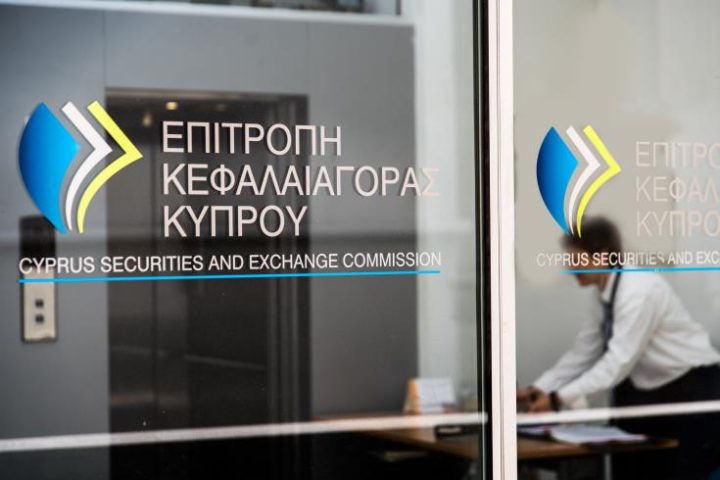By Michael Olympios
A new regulation on sustainable finance has come into effect this month, and national regulators in the common market are scrambling to enforce it.
The Cyprus Securities and Exchange Commission (CySEC) announced that the new regulation is “a step in the right direction to promote sustainable finance.”
According to the Deloitte report, “Is the financial industry ready for the big one?” the financial sector must take swift action to preserve its stability and limit damages caused by climate change.
A series of recent regulations indicate that European regulators will use the financial sector to build and finance a low-carbon economy.
CySEC Vice Chairman Dr George Theocharides told the Financial Mirror, “the new Sustainable Finance Disclosures Regulation (EU) 2019/2088 (SFDR”) became applicable on March 10.
SFDR provides more transparency on sustainability within the financial markets and expected to affect a large proportion of Cyprus’ financial services industry.
“Sustainable finance includes the process of including environmental, social and governance (“ESG”) considerations into decision making and investment advice processes. The ultimate aim is to enhance the sustainable economic development in the region,” Theocharides said.
“Supervised entities must ensure full compliance with the SFDR disclosure obligations and with their ESG responsibilities in general.
“CySEC will intervene and take actions where we see a risk of mislabelling, misrepresenting or mis-selling in relation to sustainable finance to protect investors.”
The SFDR prescribes new standardised disclosure obligations on how ‘financial market participants’ and ‘financial advisors’ integrate ESG factors (sustainability risks and consideration of adverse sustainability impacts).
It covers the entity level (in their investment decision processes) and product level (provision of sustainability‐related information concerning financial products).
It is designed to make it easier for end-investors to make informed investment decisions, improve industry-wide comparability, and prevent greenwashing (i.e., giving a false impression or misleading information about how a company’s products are more environmentally sound).
The SFDR applies to all asset managers and financial advisors whose business is in Europe, non-EU asset managers and financial advisors (and their subsidiaries) who do business in the EU and non-EU firms that sub-manage EU assets or funds.
Level 1 disclosures applicable starting from March 2021:
Level 1 disclosures are to be made on a comply-or-explain basis.
It means that starting from March 10, 2021, the in-scope asset managers and financial advisors, when they choose to comply, are obliged under the SFDR to:
a. publish on their websites information about their policies on the integration of sustainability risks in their investment decision-making process or their investment advice or insurance advice; and
b. include descriptions of the following in pre-contractual disclosures:
i. how sustainability risks are integrated into their investment decisions or investment or insurance advice; and
ii. the results of the assessment of the likely impacts of sustainability risks on the returns of the financial products they make available or advise on.
Where they deem sustainability risks not to be relevant, they must disclose and explain the reasons
c. in respect of financial products, in the pre-contractual phase (and from the beginning of 2022 periodically), provide information on certain features of financial products that:
i. promote environmental or social characteristics (so-called article 8-products or light green products); or
ii. have a sustainable investment as their objective (so-called article 9-products or dark green products).
Level 2 disclosures applicable starting from the beginning of 2022:
The second stage of the SFDR – the level-2 disclosures – is expected to enter into force at the beginning of 2022.
In-scope asset managers and financial advisors will have to start disclosing the above ESG factors periodically and align the disclosures with the EU Taxonomy Regulation and the regulatory technical standards (RTS) currently being drawn up by the Commission and the European Supervisory Authorities. These RTS will provide further detail on:
a. content;
b. methodologies; and
c. presentation of information in respect of the sustainability factors in relation to adverse impact:
i. on the climate and other environment-related adverse impacts; and
ii. in the field of social and employee matters, respect for human rights, anti-corruption and anti-bribery matters.
On March 15, 2021, the European Supervisory Authorities published a first consultation paper setting out the proposed RTS.
Potential impact
Although the SFDR is based on “comply or explain”, asset managers will likely be conscious of reputational risks and aim to ensure they incorporate sustainability risks into their investment policies to avoid inadequate risk management perception.
It may lead some asset managers to adopt investment restrictions on certain borrowers based on the ESG profile of their economic activities and how well these are being managed.
Finally, investors will need company ESG data to quantify sustainability risks and evaluate the extent to which they represent investment material risks and adverse sustainability risks to society.
The SFDR may thus have an immediate trickle-down effect on investors who require the information from businesses to ascertain the level of sustainability risk on their investments and on the companies that will have to provide such information in a manner that aligns with the EU Taxonomy, to remain an interesting prospect for investors.
Michael S. Olympios is an economist, business advisor, Editorial Consultant to the Financial Mirror
[email protected]










